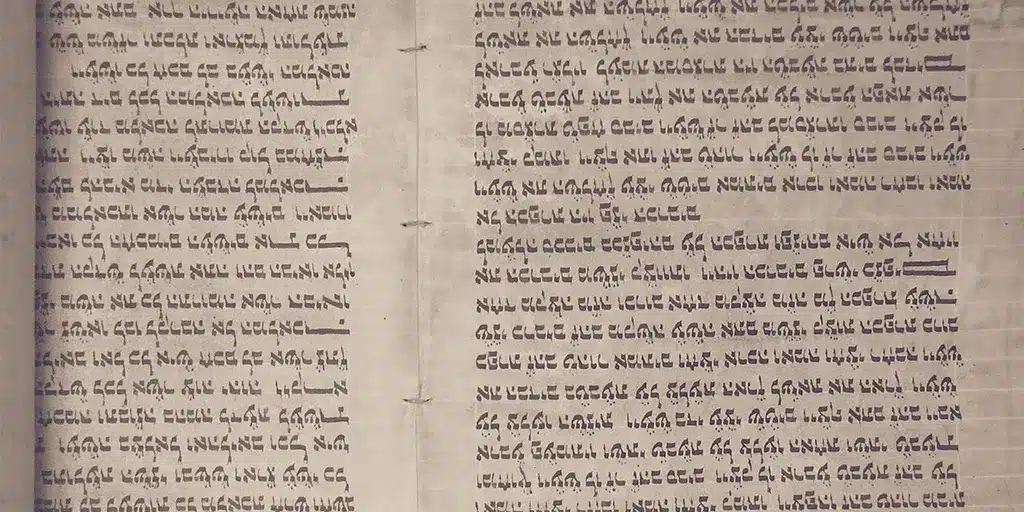Prophecies of the Coming Christ: Discovering Jesus in the Old Testament

Throughout the Old Testament we find numerous prophecies regarding the coming of the Messiah, the Christ. In fact, biblical scholar and Jewish convert Alfred Edersheim includes a list of 456 Messianic prophecies in his book The Life and Times of Jesus the Messiah.[1]
We will look at just a few of those this week. We begin with what is most likely the earliest prophecy, which is found in Genesis 3:15: “And I will put enmity between you and the woman, and between your offspring and hers; he will crush your head, and you will strike his heel.” William MacDonald explains:
“[This verse] predicts the perpetual hostility between Satan and the woman (representing all mankind), and between Satan’s seed (his agents) and her Seed (the Messiah). The woman’s Seed would crush the Devil’s head, a mortal wound spelling utter defeat. This wound was administered at Calvary when the Savior decisively triumphed over the Devil. Satan, in turn, would bruise the Messiah’s heel. The heel wound here speaks of suffering and even of physical death, but not of ultimate defeat. So Christ suffered on the cross, and even died, but He arose from the dead, victorious over sin, hell, and Satan. The fact that He is called the woman’s Seed may contain a suggestion of His virgin birth.”[2]
Here we see not only Jesus’ birth, but also His “work,” what He would do on our behalf on the cross so many years later.
Next, Isaiah 7:14, probably the most quoted prophecy regarding Jesus’ birth: “Therefore the Lord himself will give you a sign: The virgin will conceive and give birth to a son, and will call him Immanuel.” In Matthew 1:23 we are told that Immanuel means “God with us.” The virgin birth is important for several reasons. First, Kevin DeYoung explains,
“…if Christians, of all stripes in all places, have professed belief in the virgin birth for two millennia, maybe we should be slow to discount it as inconsequential. In his impressive study of the virgin birth, J. Gresham Machen concluded that ‘there can be no doubt that at the close of the second century the virgin birth of Christ was regarded as an absolutely essential part of the Christian belief by the Christian church in all parts of the known world.’ It takes a lot of hubris to think that an essential article of faith for almost 2,000 years of the Christian church can be set aside without doing damage to the faith.”[3]
DeYoung adds two other important consequences of the virgin birth: first, “the virgin birth demonstrates that Jesus is truly human and truly divine;” and “The virgin birth is essential because it means Jesus did not inherit the curse of depravity that clings to Adam’s race.”[4]
Our next prophecy comes from Micah 5:2: “But you, Bethlehem Ephrathah, though you are small among the clans of Judah, out of you will come for me one who will be ruler over Israel, whose origins are from of old, from ancient times.”
How astonishing that Micah predicted, 800 years in advance, the exact small insignificant town in which the Messiah would be born!
We read in the Expositor’s Bible Commentary that:
“Ephrathah is the ancient name of Bethlehem (Gen. 35:16, 19; 48:7; Ruth 4:11) and distinguishes it from other towns named Bethlehem (cf. Josh. 19:15). Its use identifies the town in which David was born (1 Sam. 17:12), thus establishing a connection between the messianic King and David.”[5]
And William MacDonald explains,
“Verse 2 looks forward to the birth of the One who was to be Ruler in Israel, whose goings forth are from of old, from everlasting. These words point to the Messiah’s eternity, and therefore His deity. Since there were two Bethlehems in the Holy Land, Micah specifies Bethlehem Ephrathah, six miles south of Jerusalem. This verse is intended as a contrast to verse[6]. Although Israel’s contemporary situation might be discouraging, yet all would be changed when the Messiah came.”[7]
We have that same assurance today. Although things might look bleak, although we may be under siege in different ways depending on where we live, and even under the threat of imminent death, we have the sure hope that Jesus, that same Jesus who was born in Bethlehem so long ago, is coming again!
“‘Look, he is coming with the clouds,’ and ‘every eye will see him, even those who pierced him’;… ‘I am the Alpha and the Omega,’ says the Lord God, ‘who is and was and is to come—the Almighty.’” (Revelation 1:7-8)
- Alfred Edersheim, The Life and Times of Jesus the Messiah (Andesite Press, 2015). ↑
- William MacDonald, Believer’s Bible Commentary, © 1989, 1990, 1992, 1995, 2016 by William MacDonald, accessed at biblegateway.com. ↑
- Kevin DeYoung, “Why Does It Matter that Jesus Was Born of a Virgin?” https://www.thegospelcoalition.org/blogs/kevin-deyoung/why-does-it-matter-that-jesus-was-born-of-a-virgin/. ↑
- Ibid. ↑
- Expositor’s Bible Commentary (Abridged Edition): Old Testament (© 2004), accessed at biblegateway.com. ↑
- Micah 5:1 – “Marshal your troops now, city of troops, for a siege is laid against us. They will strike Israel’s ruler on the cheek with a rod.” ↑
- MacDonald, Believer’s Bible Commentary. ↑




